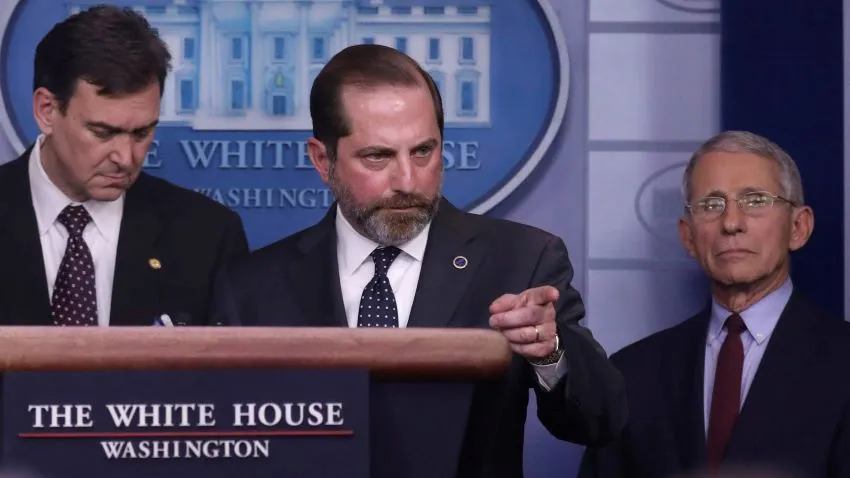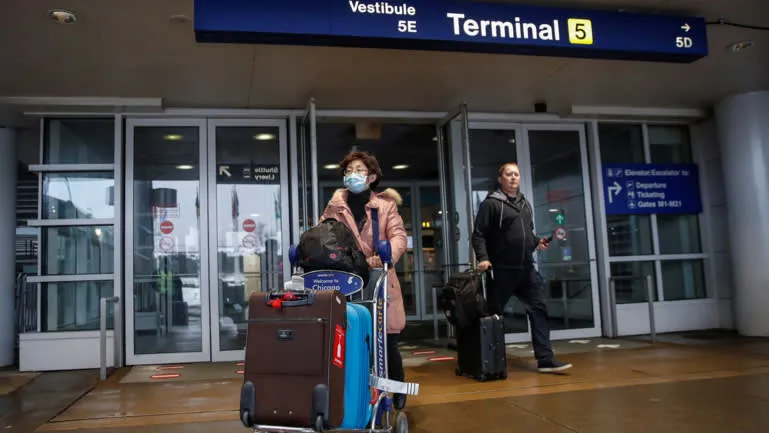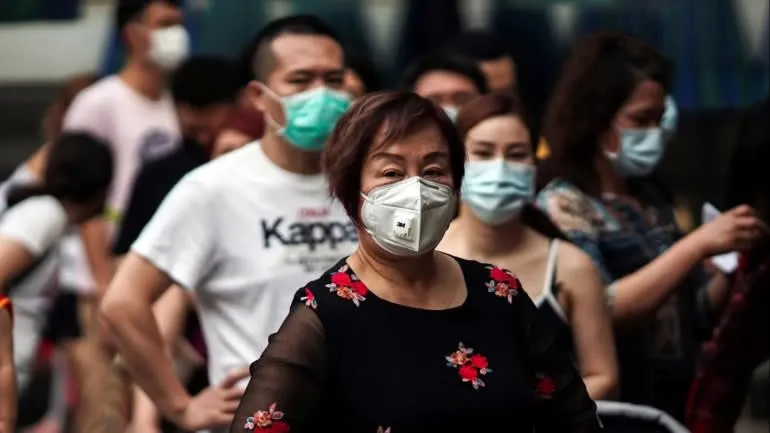
Countries including the U.S., Japan and Singapore are imposing tougher restrictions on Chinese visitors in a bid to keep out potential carriers of the novel coronavirus, as its outbreak spreads further in China beyond the epicenter of Wuhan.
The U.S. on Friday announced that it will bar entry of foreign nationals who have traveled to China in the past 14 days, effective Sunday 5 p.m. Eastern time.
"Following the World Health Organization's decision to declare the 2019 novel coronavirus a public health emergency of international concern, I have today declared that the coronavirus presents a public health emergency in the United States," U.S. Secretary of Health and Human Services Alex Azar said at the White House.
"The actions we have taken, and continue to take, complement ... the work of China and the World Health Organization to contain the outbreak within China."
Permanent residents and immediate family of American citizens are exempt from the travel ban.
Meanwhile, regarding U.S. citizens, Azar said that those who have traveled to Hubei Province, where Wuhan is located, will be subject to 14 days of mandatory quarantine. Those who have been in mainland China will undergo health screening before entry and be required to self-quarantine.
All incoming flights from China will be funneled through only seven airports: New York's John F. Kennedy, Chicago's O'Hare, San Francisco, Seattle, Atlanta, Honolulu and Los Angeles.
 A passenger wearing a mask, amid the health threat of novel coronavirus, arrives on a direct flight from China at Chicago's O'Hare airport on Jan. 24. © Reuters
A passenger wearing a mask, amid the health threat of novel coronavirus, arrives on a direct flight from China at Chicago's O'Hare airport on Jan. 24. © Reuters The ban, along with those in Japan and Singapore, would contribute further to the rapid curtailing of travel between China and the rest of the world. Data from flight-tracking site Flightradar24 showed 91 canceled international flights from China as of noon on Friday Japan time, double the previous day's 44.
Japan will bar non-Japanese travelers who have recently visited Hubei Province, where Wuhan is located, from entering the country, Prime Minister Shinzo Abe told a meeting Friday of a government virus response task force. This marks the first time Japanese immigration law has been used to keep out visitors from a specific location.
The ban, which took effect Saturday at 12:01 a.m., applies to visitors who either have visited Hubei Province in the preceding two weeks or hold a Chinese passport issued in the province.
The move follows two Japanese evacuees from Wuhan testing positive for the virus despite showing no symptoms, making it impossible to detect through normal screening processes. Recent reports indicate the virus can be spread by asymptomatic carriers.
The WHO declared the outbreak a public health emergency of international concern Thursday.
"We'll take all possible measures to enhance the effectiveness of our border controls and check the spread" of the virus, Abe said.
Japan may let in Hubei passport holders who are married to Japanese nationals or have resided for an extended period outside the province. The government looks to have travelers report their status during immigration procedures, with false information punished by visa revocation.
The government will also move up its date for classifying the virus as a "designated infectious disease" to Saturday from Feb. 7. This will allow such steps as forced hospitalization of infected patients and restrictions on work activities.
 Chinese tourists at the Erawan Shrine in Bangkok on Jan. 30. © Reuters
Chinese tourists at the Erawan Shrine in Bangkok on Jan. 30. © Reuters Singapore on Friday said it will restrict entry by nearly all Chinese nationals. It will stop issuing new visas to Chinese travelers, and starting Saturday, it will bar any travelers who have been to China in the past 14 days.
Singapore citizens, permanent residents and holders of long-term visas will be exempt but will be encouraged to stay home for two weeks in case of infection.
The city-state had confirmed 16 cases of the new virus as of Friday, all in people who had visited Wuhan, including one Singapore national. It had already closed its borders to holders of passports from Hubei province and non-Singaporeans who had been in the province recently.
Singapore reported 18.5 million foreign visitors in 2018, with nearly a fifth hailing from China. The ban is expected to deal a blow to a wide range of industries, including tourism and hotels. Inbound travelers from China have dropped by 80% compared with before the outbreak, according to Lawrence Wong, minister of national development.
The U.S. State Department issued a "do not travel" alert, its highest advisory level, for all of China on Thursday local time. Japan's Foreign Ministry has raised its travel advisory for mainland China to level 2, urging people to avoid nonessential travel. Hubei Province is under a level 3 warning recommending that all travel there be avoided.
Japanese Foreign Minister Toshimitsu Motegi said Friday that a fourth charter flight will be sent to Hubei Province sometime next week to evacuate more Japanese nationals.
All Nippon Airways has canceled all direct flights between Narita Airport near Tokyo and Wuhan through March 1. The ANA Holdings unit -- which serves 11 Chinese cities and generates more than 10% of its international revenue from China routes -- reported this week that its bookings for flights from China have fallen by half year on year for the month of February.
Rival Japan Airlines has been hit by the outbreak as well. "25% of our February bookings on China routes were canceled in the 10 days from Jan. 20," said Hideki Kikuyama, a senior executive managing officer.
Japanese travel agency JTB on Friday suspended all package tours from Japan to mainland China, Hong Kong and Macao through Feb. 29. Peer H.I.S. canceled Hong Kong- and Macao-bound tours departing between Feb. 1 and Feb. 10, on top of an earlier move to scrap tours to the mainland over the same period.
Companies are taking precautions with incoming tourism as well. Oriental Land, operator of Tokyo Disneyland and Tokyo DisneySea, on Friday restricted interactions between park guests and characters such as Mickey Mouse -- its first such step since the resort was established in 1983.
The company began letting the parks' roughly 20,000 employees wear masks on the job for the first time on Tuesday.




















